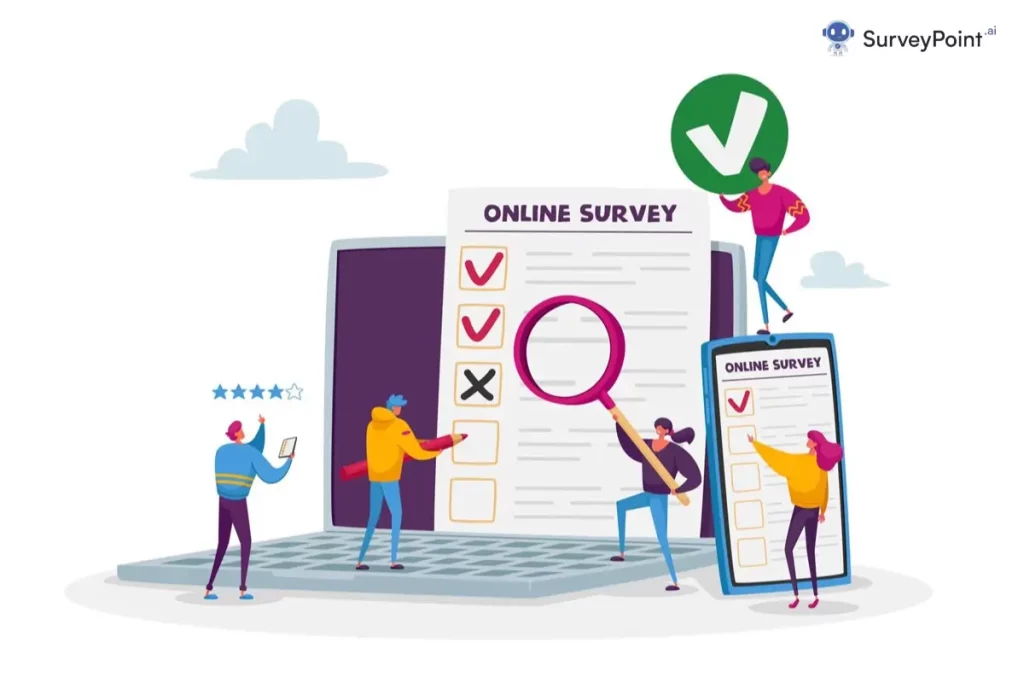
Discover the nuances of Pulse Survey vs Engagement Survey to make an informed decision for your organization. Uncover insights, benefits, and how each tool impacts employee engagement and organizational growth.
Pulse surveys and engagement surveys are both tools companies use to understand employee sentiment. Pulse surveys are short, focused, and frequent. Traditional engagement surveys are longer, less frequent, and more comprehensive. Both offer unique benefits. Understanding them helps businesses choose the best tool to improve the employee experience. This guide will clarify the differences and help you make informed decisions.
Pulse Survey vs Engagement Survey
Definition of Pulse Surveys: Pulse surveys are brief questionnaires sent out regularly (weekly, biweekly, monthly). They target specific topics, providing quick snapshots of employee sentiment.
Definition of Engagement Surveys: Engagement surveys are in-depth assessments, typically conducted annually or semi-annually. They cover a wide range of factors influencing employee engagement and organizational culture.
Key Differences (Table Format)
| Feature | Pulse Surveys | Engagement Surveys |
| Frequency | Frequent (weekly, monthly) | Less Frequent (annual, etc.) |
| Length | Short (5-15 questions) | Long (50+ questions) |
| Scope | Focused on specific topics | Broad, comprehensive |
| Best Uses | Quick feedback, trend tracking, targeted change | Benchmarking, deep cultural insights |
Gauging Reaction to Change: Get feedback on a new policy, initiative, or reorganization.
Quick Temperature Checks: Track overall morale or satisfaction during specific periods.
Regular Feedback Loops: Establish a continuous feedback channel rather than once-a-year reviews.
You Must Read 12 Elements of Employee Engagement: Improve Workplace Happiness CAWI Survey: The Ultimate Guide to Online Data Collection
When to Use Engagement Surveys
Annual Benchmarking: Establish baselines for employee engagement and track against over time.
Deep Dives into Organizational Culture: Identify strengths, weaknesses, and areas needing improvement.
Combining Pulse and Engagement Surveys for Maximum Impact
Using both in tandem offers the most complete picture of employee sentiment. Pulse surveys provide real-time insights and address immediate concerns, while engagement surveys give long-term trend analysis.
Choosing the Right Survey Tool
Features: Consider question types, reporting capabilities, and anonymity options.
Reporting: Ensure robust analytics for translating feedback into actionable insights.
Cost: Find a solution that fits your budget and aligns with your survey frequency.
FAQs: Pulse Survey vs Engagement Survey
Q: Are Pulse Surveys and Engagement Surveys interchangeable?
A: While both gather employee feedback, they serve different purposes. [Pulse Surveys] focus on frequent, real-time insights, while [Engagement Surveys] provide in-depth, periodic evaluations.
Q: How often should Pulse Surveys be conducted?
A: [Pulse Surveys] are designed for regular intervals, often weekly or bi-weekly, to capture evolving employee sentiments and address immediate concerns.
Q: What is the ideal frequency for Engagement Surveys?
A: [Engagement Surveys] are typically conducted annually or bi-annually, providing a comprehensive overview of long-term employee satisfaction and engagement.
Q: Can technology enhance the effectiveness of Pulse Surveys?
A: Absolutely, leveraging technology for [Pulse Surveys] streamlines the process, making it easier to collect, analyze, and act upon real-time feedback.
Q: How can organizations ensure Employee Participation in Engagement Surveys?
A: Encourage [Employee Participation] by fostering a culture of transparency, assuring anonymity, and communicating the value of their feedback in shaping the organization.
Q: What role do actionable results play in Pulse Surveys?
A: The success of [Pulse Surveys] lies in translating insights into actionable initiatives, ensuring positive changes based on employee feedback.
Conclusion
Pulse surveys and engagement surveys are distinct tools, each offering benefits for understanding employee experience. Choose the survey that aligns with your goals – quick feedback vs. in-depth insights. The right tool, used strategically, significantly enhances employee engagement efforts.

